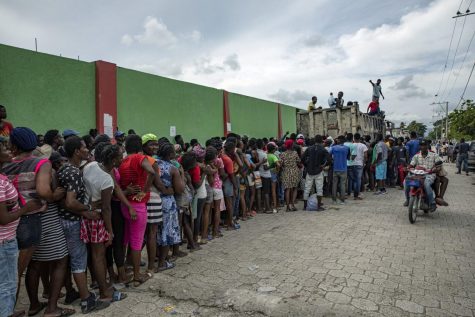OPINION | Who should lead Haitian aid efforts?
August 26, 2021

The island nation of Haiti has experienced an overabundance of catastrophe. While still reeling from the assassination of their president, the nation’s Prime Minister resigned without any public address. In the midst of political turmoil, a brutal earthquake struck Haiti and is estimated to have killed at least 2,000 people. While the nation attempts to find its feet, the United States has called for Haiti to hold free and fair elections by September, an event that Haiti has already postponed until November at the earliest.
Seeing the Haitian government struggle to manage relief efforts, elections and internal politics, it is tempting to ask who is providing aid in this time of crisis.
“We have made it very clear to Haitian authorities; the United States is standing ready to provide assistance, and we are prepared to provide any and all forms of appropriate assistance to our Haitian partners” Ned Price, a spokesperson for the United States State Department, said.
While delivery of humanitarian aid is uplifting, its fruits have been slow to bear. This delayed distribution may be due to Haiti’s storied history of making aid disappear, which is speculated to have made potential donors hesitant, but aid from external governments has already been delivered. As of Aug. 23, Haiti has received 110 metric tons of food from international aid, as well as 52,000 pounds of construction and medical equipment. The U.S. Military has also sent its own relief forces to Haiti, including helicopters which serve as medevac units and rescue transports. Such an abundance of aid may help Haitians survive the aftermath of the earthquakes, but some believe this relief does not have the right people at the helm.
“Every response has to be led by the community,” Christy Delafield, communications director of Mercy Corps, said. “If any of us had a disaster in our own community, we would know where the resources are. We would know who had access to what types of information, what types of tools. And it’s exactly the same here.”
While Delafield’s call of Haitian-led relief is understandable, such a goal is not realistic. The Haitian emergency response system is simply overwhelmed, with hospitals being overcrowded and emergency responses being slow. Haitian airports are so small that, after 2010’s brutal earthquake, accepting foreign aid became a struggle. The Haitian government cannot be everywhere at once, nor should that be expected of them.
Wealthier, more populated nations such as the U.S. have accepted international support when faced with disaster — hurricanes Katrina and Harvey come to mind — so accepting aid is the rational thing for Haitian officials to do. Managing that aid, however, is not a responsibility that they should be expected to undertake.
The physical relief efforts and rescue operations, at best, should be a joint operation between those providing aid and Haitian representatives. As Delafield said, Haitians have local knowledge which can expedite aid efforts — but expecting them to be entirely in charge of said aid will only overwhelm an already exhausted government. Accepting help does not always entail managing it.






















Leave a Comment